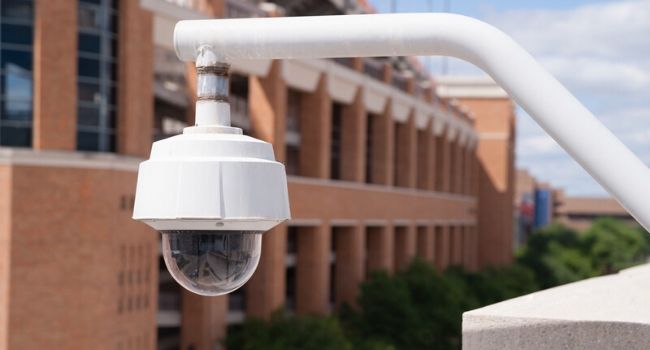
Activist Groups Launch Campaign to Pressure Universities to Ban Use of Facial Recognition
Fight for the Future and Students for Sensible Drug Policy are behind the effort to pressure college administrators to not use facial recognition software on their camera systems.
- By Haley Samsel
- January 14, 2020
College students are partnering with anti-facial recognition activists to keep the technology from being used on university campuses, privacy advocacy group Fight for the Future announced on Tuesday.
Fight for the Future has paired up with Students for Sensible Drug Policy, which advocates for drug policy reforms, to fight against biometric surveillance on campuses. In coordination with the announcement, the two groups have launched a website and toolkit for student activists across the country to push against efforts to use facial recognition as part of campus security operations.
The effort includes a petition drive to ban non-personal use of facial recognition on campus, including at universities like George Washington University in Washington, D.C. and DePaul University in Chicago. About twelve university administrations, including Northwestern, Harvard and Stanford, have been contacted to clarify their policies on facial recognition.
“Schools that are already using this technology are conducting unethical experiments on their students,” said Evan Greer, the deputy director of Fight for the Future, which conducted a similar campaign to pressure music festivals to ban facial recognition. “Students and staff have a right to know if their administrations are planning to implement biometric surveillance on campus.”
The announcement comes as cities and states have begun to reckon with the use of facial recognition in surveillance cameras used by police, landlords, retail stores and more. At least five cities, including three California cities and two Massachusetts towns, have banned police use of facial recognition. Last fall, the state of California adopted a measure that put a moratorium on police use for three years.
There has also been increasing scrutiny of how schools use facial recognition on students and protect student privacy. The Lockport School District in New York faced pushback over the past few months for its decision to implement facial recognition software, and more districts across the country are undergoing scrutiny by news outlets for how they adopt the technology as part of their quest to secure schools.
Fight for the Future noted that while there have been several reports of elementary and high schools testing facial recognition, it is not yet “widely used” at U.S. universities.
“Students have an obligation to prevent this technology going mainstream, beginning with university campuses, where we have the most power and we know how to win,” said Erika Darragh, a board member at Students for Sensible Drug Policy.
About the Author
Haley Samsel is an Associate Content Editor for the Infrastructure Solutions Group at 1105 Media.